Association between suicide attempts and selective serotonin reuptake inhibitors: systematic review of randomised controlled trials
- PMID: 15718539
- PMCID: PMC549110
- DOI: 10.1136/bmj.330.7488.396
Association between suicide attempts and selective serotonin reuptake inhibitors: systematic review of randomised controlled trials
Erratum in
- BMJ. 2005 Mar 19;330(7492):653
Abstract
Objective: To establish whether an association exists between use of selective serotonin reuptake inhibitors (SSRIs) and suicide attempts.
Design: Systematic review of randomised controlled trials.
Data sources: Medline and the Cochrane Collaboration's register of controlled trials (November 2004) for trials produced by the Cochrane depression, anxiety, and neurosis group.
Selection of studies: Studies had to be randomised controlled trials comparing an SSRI with either placebo or an active non-SSRI control. We included clinical trials that evaluated SSRIs for any clinical condition. We excluded abstracts, crossover trials, and all trials whose follow up was less than one week.
Results: Seven hundred and two trials met our inclusion criteria. A significant increase in the odds of suicide attempts (odds ratio 2.28, 95% confidence 1.14 to 4.55, number needed to treat to harm 684) was observed for patients receiving SSRIs compared with placebo. An increase in the odds ratio of suicide attempts was also observed in comparing SSRIs with therapeutic interventions other than tricyclic antidepressants (1.94, 1.06 to 3.57, 239). In the pooled analysis of SSRIs versus tricyclic antidepressants, we did not detect a difference in the odds ratio of suicide attempts (0.88, 0.54 to 1.42).
Discussion: Our systematic review, which included a total of 87 650 patients, documented an association between suicide attempts and the use of SSRIs. We also observed several major methodological limitations in the published trials. A more accurate estimation of risks of suicide could be garnered from investigators fully disclosing all events.
Figures
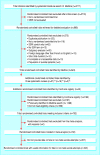
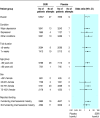
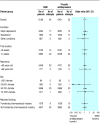
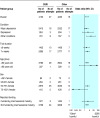
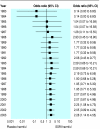
Comment in
-
Suicide, depression, and antidepressants.BMJ. 2005 Feb 19;330(7488):373-4. doi: 10.1136/bmj.330.7488.373. BMJ. 2005. PMID: 15718515 Free PMC article. No abstract available.
-
Do selective serotonin reuptake inhibitors cause suicide? Data seem to be incorrect.BMJ. 2005 May 14;330(7500):1149-50; author reply 1150. doi: 10.1136/bmj.330.7500.1149-b. BMJ. 2005. PMID: 15891237 Free PMC article. No abstract available.
-
Do selective serotonin reuptake inhibitors cause suicide? Let's keep it in perspective.BMJ. 2005 May 14;330(7500):1149; author reply 1150. doi: 10.1136/bmj.330.7500.1149-a. BMJ. 2005. PMID: 15891238 Free PMC article. No abstract available.
-
Do selective serotonin reuptake inhibitors cause suicide? Discrediting old drugs may be useful in marketing new ones.BMJ. 2005 May 14;330(7500):1149; author reply 1150. doi: 10.1136/bmj.330.7500.1149. BMJ. 2005. PMID: 15891239 Free PMC article. No abstract available.
References
-
- Vanderhoff BT, Miller KE. Major depression: assessing the role of new antidepressants. Am Fam Physician 1997;55: 249-54, 259-60. - PubMed
-
- Guze BH, Gitlin M. New antidepressants and the treatment of depression. J Fam Pract 1994;38: 49-57. - PubMed
-
- Teicher MH, Glod C, Cole JO. Emergence of intense suicidal preoccupation during fluoxetine treatment. Am J Psychiatry 1990;147: 207-10. - PubMed
-
- Rothschild AJ, Locke CA. Reexposure to fluoxetine after serious suicide attempts by three patients: the role of akathisia. J Clin Psychiatry 1991;52: 491-3. - PubMed
Publication types
MeSH terms
Substances
LinkOut - more resources
Full Text Sources
Other Literature Sources
Research Materials
Miscellaneous
